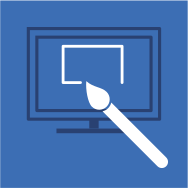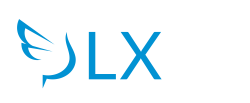The Fedora Special Interest Groups (SIGs) are teams within the Fedora Project that are less formal than official subprojects. The SIGs are sometimes a first stage in the development of new projects within the Fedora Project.
Introduction to some SIGs
Ada
Maintainers of Ada packages in Fedora are strongly encouraged to subscribe to the Fedora Ada mailing list. Anyone else who is interested is also welcome to subscribe.
Amateur Radio
Goal of Amateur Radio group is to improve the Fedora collection by adding packages for amateur radio (Ham Radio) operators and SWLs.
Astronomy
Goal of Fedora Astronomy group is to gather people interested to improve support for astronomers and astrophysicists.
Audio Creation
Our goal is to make Fedora the best free/open-source platform for computer-based music production, audio mastering, and audio editing.
Big Data
The Big Data SIG, in grand Fedora style, aims to make Fedora the best platform for all things related to Big Data.
Bug Triage
Fedora Bug Triage attempts to manage the flow of bug reports filed against other Fedora projects. They stand to prevent the other project members being overwhelmed by bug reports, eliminating trivial bugs, removing or correcting flawed or inadequate reports, and making sure that maintainers are able to get things done.
Cloud
The Fedora Cloud SIG works to make Fedora successful on all major cloud platforms, public and private.
Desktop
The Desktop SIG strives to make Fedora a very good desktop distribution. The goal is to produce a more targeted desktop spin while maintaining traditional Fedora strengths such as security and commitment to free software. The Desktop SIG will develop and release the "Fedora Desktop" live CD
DotNet
The DotNet SIG is a group of Fedora contributors that maintain dotnet (and related) packages in Fedora. The goal of this group is to help to anyone interested in dotnet and to support others in creating and maintaining dotnet packages. Anyone interested in C# / dotnet is welcome!
Education
The mission of the Fedora Education SIG (Edu SIG) is to optimize Fedora for use by teachers and learners, both within and outside of the context of educational institutions.
We do this by building, maintaining, and evangelizing a strong ecosystem of educational packages within Fedora and by supporting learners in using these packages as tools to reach their curricular goals.
EPEL
EPEL (Extra Packages for Enterprise Linux) is targeted at filling the gap between the complete Fedora Collection and the packages that are maintained in Enterprise Linux. We are a community of individuals focusing on package maintenance and infrastructure to provide as many packages as possible to the consumers of Enterprise Linux. The EPEL SIG is led by a steering committee.
Erlang
The mission of the Erlang SIG is to encourage the packaging of Erlang projects in Fedora.
FLTG
FLTG (Fedora Language Testing Group) takes care of the Fedora testing activities: take initiative to conduct the Fedora test days, update necessary wiki pages, prepare test cases, get things coordinated and organized for the testers.
Fonts
The Fonts Special Interest Group is an informal group of Fedora Linux contributors. It is dedicated to improving fonts availability and text rendering/layouting in the distribution and its other Linux derivatives.
Join us and help:
| Activity | OS Developer | Translator | Content Writer | Designer | People Person |
|---|---|---|---|---|---|
|

|
||||
|

|
||||

|
|||||
|

|

|

|
||
|

|

|

|
||

|

|

| |||
|

|

|
Any font or text-related activity can be tackled, as long as the result is free/libre and compatible with the Fedora objectives.
The current SIG task list is published here.
Formal Methods
"Formal methods" are techniques that use mathematics to prove that models of software, hardware, or systems will or will not have certain behaviors. To be practical, they must be automated using tools. The goal of the Formal Methods SIG is to make it easy to install formal methods tools in Fedora, ease learning how to apply them, encourage the development of "open proofs" (where an implementation, proofs, and required tools are all FLOSS), and to provide feedback to toolmakers so that the tools in Fedora can become more powerful, more scaleable, and easier to use together.
Games
Goal of Games SIG is to make Fedora the best Free software and open source gaming platform there is for both developers and users.
Geographic Information System
GIS is an initiative aimed to pack GIS technology related OSS in Fedora/EPEL and turn Fedora/EPEL to be the best chioce for a GIS platform.
Independent Software Vendor (ISV)
The ISV can be anything from a one- or two-man shop to a software design and development powerhouse. Fedora is a great platform for showing off your product, especially to community developers who might be interested in contributing code, plugins, or feedback.
Java
The Java SIG is a group of Fedora contributors that contribute towards Java in Fedora. Their mission is to provide high-quality Java applications and environment to Fedora users and developers and to support each other in the maintenance.
KDE
The KDE SIG is a group of Fedora contributors that maintain KDE packages in Fedora. Their mission is to provide high-quality, usable KDE software packages to Fedora users and developers and to support one another in maintaining those packages.
Live DVD
Our Mission is to provide a stable Live DVD per stable release of Fedora.
Live Upgrade
If you want to participate in efforts to make live upgrades smoother, join the Live Upgrade SIG.
LXDE
The LXDE SIG is a group of Fedora contributors that contribute towards LXDE in Fedora. Their mission is to define a high-quality LXDE experience to Fedora users and developers in maintaining packages and helping each other in all LXDE related efforts.
|
LXQt
The LXQt SIG is a group of Fedora contributors that contribute towards LXQt in Fedora. Their mission is to define a high-quality LXQt experience to Fedora users and developers in maintaining packages and helping each other in all LXQt related efforts.
This SIG is very similiar to LXDE cause both projects are connected.
|
Machine Learning
The Machine Learning SIG's goal is to make Fedora the best platform for all things related to Machine Learning. We aim to act a hub in the gap between the Astronomy, Bigdata, Fedora Medical and Science and Technology SIGs.
Fedora Medical
The Fedora Medical is a group of Fedora contributors that are interested in having a dedicated spin/application bundle to be used by the healthcare and medical community.
Minimal Core
The Fedora Minimal Core SIG is a group of people interested in maintaining Fedora's minimal package set. This is the Core group in the comps file, and any packages installed by the Anaconda installer by default.
Mobility
The Fedora Mobolity SIG is a group of Fedora contributors that are interested in Fedora on small devices. Initially aimed at supporting NetBooks, Mobile Internet Devices (MIDs), Tablets etc. It could over time be expanded to also cover things such as Set Top Boxes (STBs).
Mono
The Mono SIG is a group of Fedora contributors that maintain Mono (and related) packages in Fedora. Their goal is to provide high-quality and usable mono software packages to Fedora users and developers and to support one another in maintaining those packages.
NeuroFedora
The NeuroFedora is a group of researchers and Fedora contributors that are interested in having a dedicated spin/application bundle to be used by the neuroscience and neuroimaging community. NeuroFedora builds on top of several other spins and SIGs including BigData, Data Science, Fedora Medical, Machine Learning, Octave, Robotics and Science and Technology.
NoSQL
The NoSQL SIG is a group of Fedora contributors that maintain NoSQL-related packages in Fedora. Their goal is to provide high-quality and usable NoSQL software packages to Fedora users and developers and to support one another in maintaining those packages.
Package Review
This SIG is currently in its infancy and things are still being organized. The job is to process new package review submissions and review them for quality and adherence to the Packaging Guidelines. As this is the initial experience for many new contributors to the Fedora Project, we also work towards making this procedure as enjoyable as possible. Anyone is welcome to join. Obviously it is necessary for one to already be a packager in order to review packages, but there are many tasks that can be done by anyone, and participation in the SIG is a good path to sponsorship.
Perl
This is a group devoted to packaging Perl modules and applications for Fedora.
PHP
To assist packagers in bringing PHP-related packages to Fedora and assisting in their continued maintenance by providing timely reviews, acting as secondary package owners and assisting with related security issues.
|
Printing
The Fedora Printing Project's goal is to create a good printing experience on Fedora.
|
Robotics
The goal is to bring packages of open and free software related to robotics and educational software for robotics into Fedora and make Fedora fit to power (mobile) robots. Fedora Robotics SIG
Ruby SIG
A SIG for people who are interested in improving the state of Ruby in Fedora. This includes packaging Ruby libraries and applications, setting and improving standards for packaging them as RPM's and maintaining Ruby packages for Fedora.
|
Science and Technology
The purpose of the Fedora Sci-Tech SIG is to improve the number and quality of packages available for scientific and technical users.
Fedora Science and Technology SIG
Secondary Arches
The purpose of the Secondary arch SIGS are to promote fedora on different architectures.
Currently there are teams for:
Security
The Security SIG has goals of developing secure-coding (and other) training, code audits, and working with security vulnerabilities.
Server
Our goal is to make Fedora suitable for server deployments and the perfect base for enterprise systems like RHEL.
Sound
We are to create free sound themes for fedora, using only FOSS software available from the Fedora repositories.
Spins
A SIG for technical review of Spins contributed by the community.
Stateless Linux
The Stateless Linux project is an OS-wide initiative to ensure that Fedora computers can be set up as replaceable appliances, with no important local state.
SSCG
SSCG (Source String Contextualizing Group) provides meaningful descriptions of the source strings for translators to ensure the correctness and quality of the translations. Thus facilitating good end user experience of the localized Fedora applications.
Store
A SIG devoted to getting a store running, both for users looking for one-off purchases and for Ambassadors who need swag in bulk.
Usability
Fedora Usability aims to provide coherence, accessibility and intuitiveness for all people using Fedora and its associated resources.
Xfce
The Fedora Xfce SIG works on the integration of the Xfce desktop environment. The aim is to establish Xfce as desktop environment besides GNOME and KDE.
|
3D Printing
The Fedora 3D Printing SIG's goal is to make Fedora the best platform for 3D printing.
This category currently contains no pages or media.



